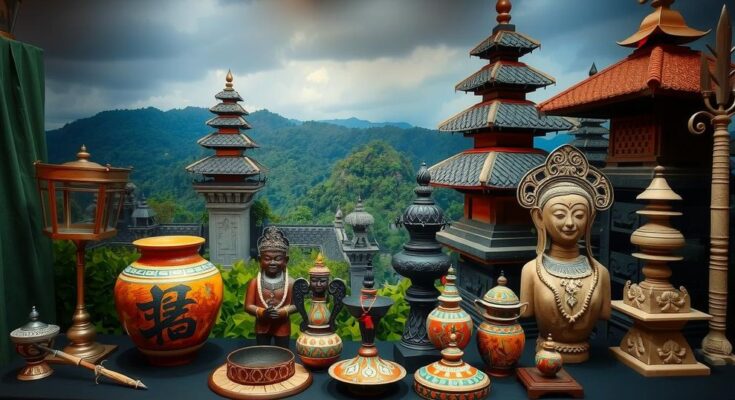The Dutch government is returning cultural artifacts, including notable Balinese heirlooms, to Bali as part of a repatriation agreement. The Acting Governor has called for support to enhance the Bali Museum as part of this initiative. Discussions also focus on agriculture, sustainable tourism, and strengthening ties between Bali and the Netherlands. The return of these artifacts is expected to promote cultural tourism and enhance the local economy.
Cultural treasures from Bali have begun their return journey from the Netherlands, marking a significant moment for both regions. The Acting Governor of Bali, Sang Made Mahendra Jaya, met with Dutch ambassadors to discuss the repatriation of important artifacts, including the historic Keris. These artifacts will enrich the Bali Museum, which is undergoing necessary renovations to better house its extensive collection. During the meeting in Denpasar, the focus was not only on artifact repatriation but also on fostering stronger ties between Bali and the Netherlands. The governor emphasized the importance of supporting local skills and sectors such as agriculture and sustainable tourism, which are vital for Bali’s economy amidst its annual influx of 20 million visitors. The Dutch Ambassador, Marc Gerritsen, acknowledged the layered history between Indonesia and the Netherlands, noting the positive paths these nations can forge together. He commended the efforts of the Bali government in developing its agricultural and cultural sectors to advantage the local economy while enhancing its appeal to tourists. Restoration of cultural artifacts aligns with Bali’s vision to bolster cultural tourism, particularly in areas like Denpasar that often go unnoticed by travelers. Walkable city tours offer a novel way for visitors to discover hidden gems, deepening their connection to the local heritage and community. Ni Luh Putu Riyastiti, Head of the Denpasar Tourism Office, stressed the importance of balance between modernity and cultural preservation in tourism development. She highlighted how cultural heritage tourism fosters an understanding of Denpasar’s richness while ensuring ancestral traditions remain alive and vibrant.
The ongoing repatriation of cultural artifacts is a response to historical injustices from Indonesia’s colonial past. The Dutch government has committed to returning significant items that symbolize Indonesia’s heritage. As Bali prepares for these artifacts’ arrival, discussions are also centered on further collaboration between Bali and the Netherlands, focusing on sustainable development in various sectors to improve local life and preserve cultural identity.
The return of Balinese artifacts from the Netherlands represents a monumental step toward acknowledging past colonial wrongs. This initiative promises to enrich the local cultural landscape and invigorate tourism projects aimed at highlighting Bali’s heritage. As stakeholders work together to foster economic sustainability and cultural tourism, Bali positions itself as a vibrant nexus of history and modernity.
Original Source: thebalisun.com



